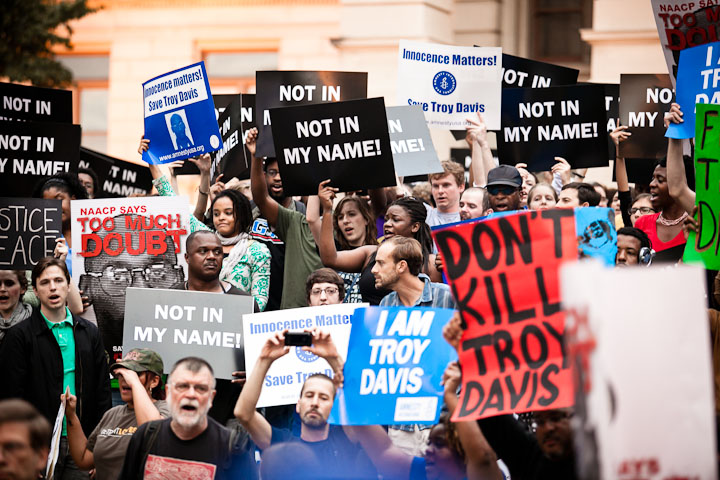
More than 700 protesters gathered at the Georgia Capitol on the night of Troy Davis’s execution. (Photo by Scott Langley)
One For Ten (“a series of films about innocence and death row”) has a beautiful piece today on photographer Scott Langley and his wrenching experience documenting the execution of Troy Davis. Scott is also Amnesty International’s New York State Death Penalty Abolition Coordinator, and has photographed the US death penalty abolition movement for many years.
In September 2008, as Scott arrived to document Troy’s second of what would be four execution dates, the prison guard checking him in told him: “I just hope the truth comes out.”
As the death penalty abolition movement has grown, everyone from artists to lawyers has worked to expose the truth – about the death penalty in general, about particular cases like Troy’s, and about the deeply flawed political and legal system in which capital punishment operates. And as the truth has come out, support for the death penalty has dropped.
The hard data (about deterrence, financial costs, error rates, etc.) shows clearly that the death penalty doesn’t work and has led many to conclude that it should be abandoned. But it is the profound emotional truths (the human impact of executions on families and communities) revealed by photographers like Scott that deepens and solidifies opposition to capital punishment.
For the foreseeable future, executions and death sentences may continue, albeit at reduced levels and in a diminishing number of states. But every time someone documents or exposes the truth about the death penalty we come closer to recognizing capital punishment as the ultimate human rights violation that it is, and finally deciding to let it go.